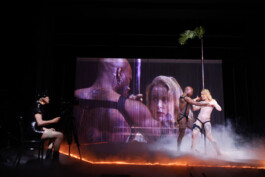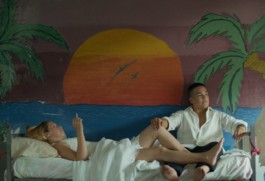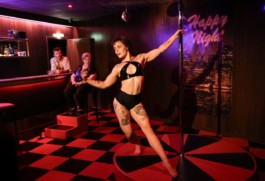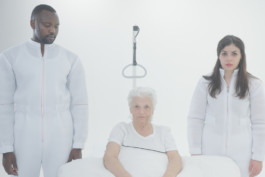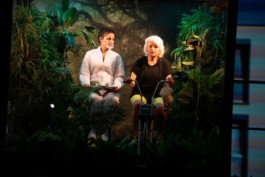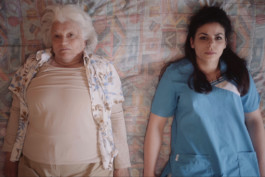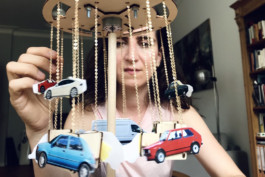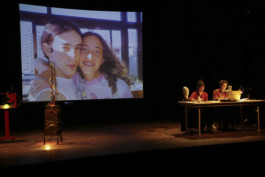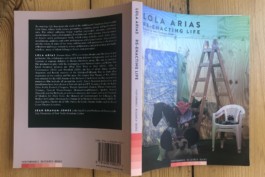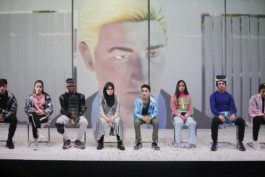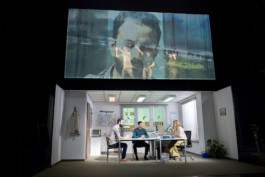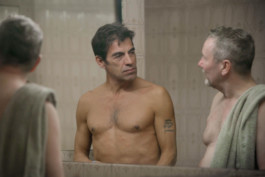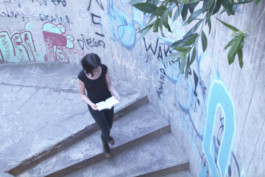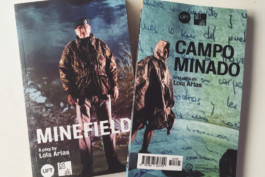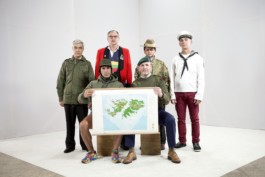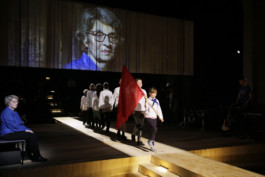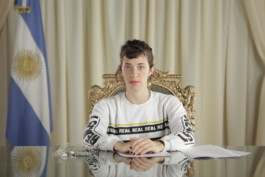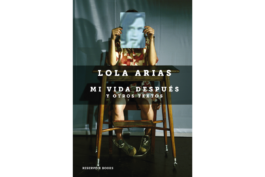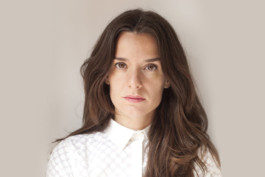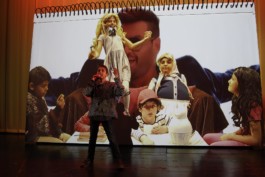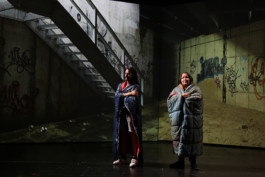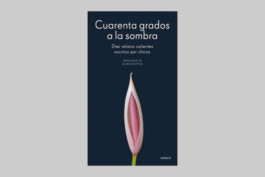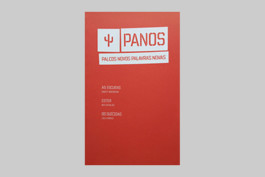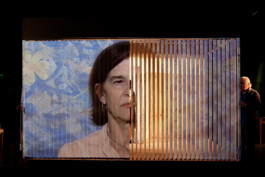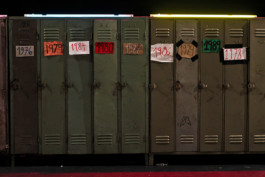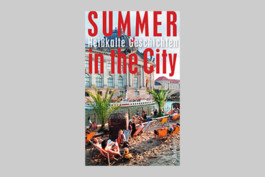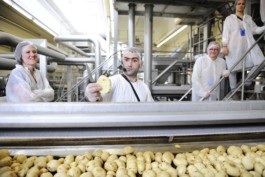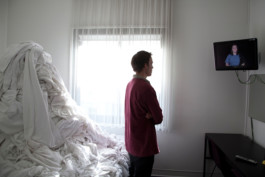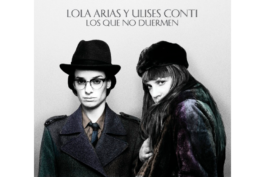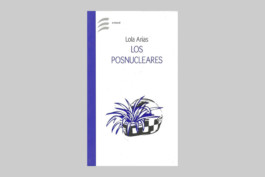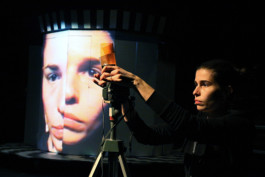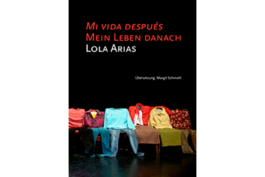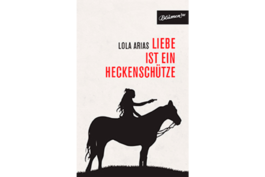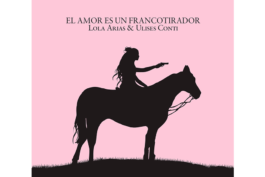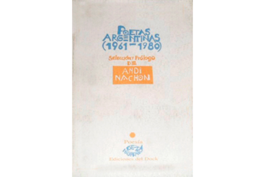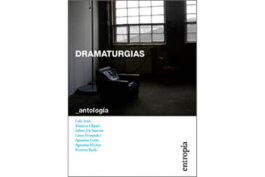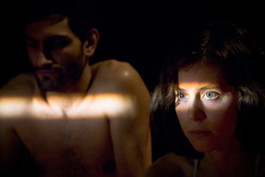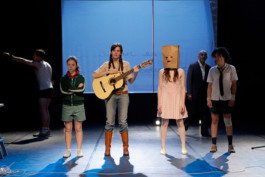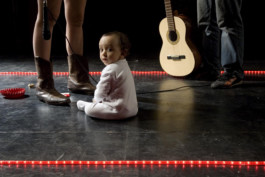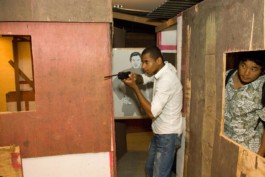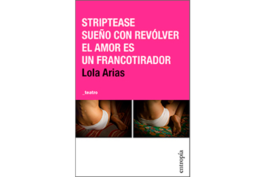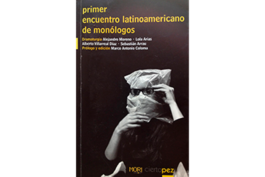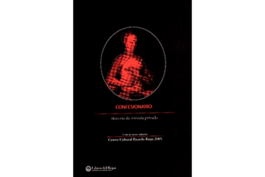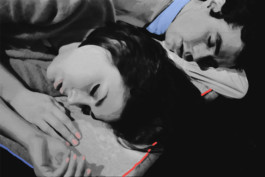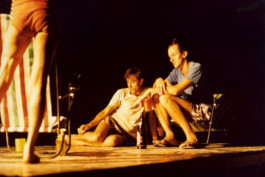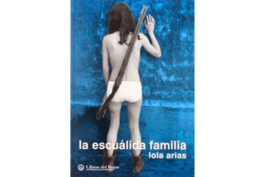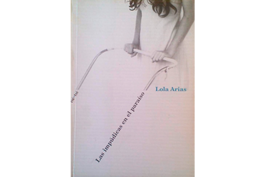THE DAYS OUT THERE
2024
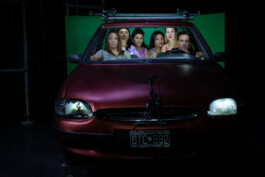
©Eugenia Kais
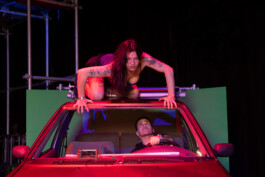
© Eugenia Kais
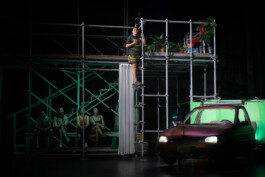
© Eugenia Kais
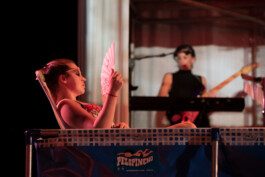
© Eugenia Kais
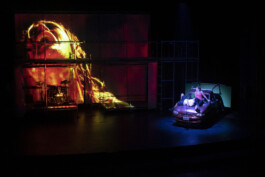
© Eugenia Kais
CREDITS
WITH Yoseli Arias, Paulita Asturayme, Carla Canteros, Estefania Hardcastle, Noelia Perez, Ignacio Rodriguez and Inés Copertino (musician)
CONCEPT, TEXT AND DIRECTION Lola Arias
DRAMATURGY Bibiana Mendes
ARTISTIC COLLABORATION Alan Pauls
TRANSLATION FOR SURTITLES Alan Pauls (French), Daniel Tunnard (English)
SCENOGRAPHY AND SETS Mariana Tirantte
CHOREOGRAPHY Andrea Servera
MUSIC Ulises Conti, Inés Copertino
LIGHTNING David Seldes
VIDEO Martin Borini
COSTUMES Andy Piffer
ASSISTANT DIRECTOR Pablo Arias Garcia
STAGE MANAGER David Seldes
VIDEO MANAGER Martin Borini
SOUND MANAGER Ernesto Fara
STAGE HANDS Roberto Baldinelli, Andrés Pérez Dwyer, Manuel Ordenavia
PRODUCTION AND TOUR SET-UP Lison Bellanger, Emmanuelle Ossena (EPOC productions)
TOUR DIRECTOR AND TOUR MANAGER Lucila Piffer
ADMINISTRATION AND PRODUCTION Mara Martinez (Lola Arias Company)
PRODUCTION Luz Algranti, Sofia Medici
TECHNICAL PRODUCTION Ezequiel Paredes
ASSISTANT SET DESIGNER Lara Stilstein
ASSISTANT DIRECTOR CTBA Julián Castro, Florencia Galano
PRODUCTION ASSISTANT Juan Manuel Zuluaga Bolívar
SET DESIGN ASSISTANT Lara Stilstain
STAGE MANAGEMENT ASSISTANT Facundo David
CASTING Tálata Rodríguez (GEMA films)
LEGAL ADVISOR Felix Helou
SOCIAL WORK Soledad Ballesteros
PRODUCTION Lola Arias Company
ASSOCIATED PRODUCTION Gema Films
COPRODUCTION Complejo Teatral de Buenos Aires, Festival d'Avignon, Festival d'Automne à Paris, Théâtre de la Ville (Paris), Théâtre national Wallonie-Bruxelles, Festival Tangente St Pölten, Kaserne Basel, La Comédie de Genève, Maxim Gorki Theater (Berlin), Nationaltheatret (Oslo), Scène nationale du Sud-Aquitain (Bayonne), Le Parvis Scène nationale Tarbes-Pyrénées, La Rose des vents Scène nationale Lille Métropole Villeneuve-d'Ascq, NEXT Festival, Théâtre national de Strasbourg, International Sommerfestival Kampnagel (Hamburg), Théâtre national de Bordeaux en Aquitaine, Zürcher Theater Spektakel (Zurich), Künstler innenhaus Mousonturm (Frankfurt), The Brighton Festival, Centre dramatique national Orléans Centre-Val de Loire, Fonds TransFabrik deutsch-französischer Fonds für darstellende Künste
SET CONSTRUCTION Ateliers de construction du Théâtre National Wallonie Bruxelles
WITH THE SUPPORT OF Onda - Office national de diffusion artistique
ACKNOWLEDGEMENTS Gema Juárez Allen and Clarisa Oliveri, Rita and Remo Pauls, Lucia Arias, Roy Kaplan, Laura Nicolás, Mariana Volpi, Mellisa Aller
PERFORMANCES IN PARTNERSHIP WITH France Médias Monde
TOUR
2025
13 > 16 November 2025
Contemporánea Condeduque, Madrid, Spain
19 > 20 June 2025
Festival Theaterformen, Hannover, Germany
18 > 19 April 2025
Gorki Theater, Berlin, Germany
10 > 11 April 2025
Teatro Municipal do Porto, Portugal
3 > 4 April 2025
Mousonturm, Frankfurt, Germany
26 > 27 March 2025
CDN Orléans, France
19 >21 March 2025
TnBA, Théâtre National Bordeaux Aquitaine, Bordeaux, France
27 > 28 February, 1 March 2025
Comédie de Genève in the frame of Festival Antigel, Geneva, Switzerland
21 > 22 February 2025
De Singel Anvers, Belgium
12 > 15 February 2025
Théâtre National Wallonie Bruxelles, Belgium
3 > 7 February 2025
Théâtre National de Strasbourg, France
28 > 29 January 2025
Tandem, scène nationale de Douai-Arras, France
2024
4 > 5, 7 > 10 July 2024
Festival d’Avignon, Avignon, France
13 > 14 July 2024
GREC Festival, Barcelona, Spain
8 > 10 August 2024
International Summer Festival Kampnagel, Hamburg, Germany
15 > 17 August 2024
Theater Spektakel Zürich, Zürich, Switzerland
20 > 21 August 2024
International festival Basel, Basel, Switzerland
14 > 15 September 2024
Maxim Gorki Theater, Berlin, Germany
19 > 20 September 2024
Tangente Festival, St Pölten, Austria
3 > 5 October 2024
Théâtre de la Ville in the frame of Festival d’Automne à Paris, France
12 October 2024
Nationaltheatret Oslo & Ceremony of the International Ibsen Award, Norway
17 > 19 October 2024
Théâtre de la Croix-Rousse in the frame of Festival Contre-Sens, Lyon, France
6 > 7 November 2024
MAC Créteil in the frame of Festival d’Automne, Paris, France
14 > 15 November 2024
NEXT Festival / La rose des vents, Villeneuve d’Ascq, France
23 November 2024
Gorki Theater, Berlin, Germany
27 > 28 November 2024
Le Quai CDN Angers, France
4 > 5 December 2024
Scène nationale de Bayonne, France
9 > 10 December 2024
Le Parvis, scène nationale de Tarbes, France
TOUR MANAGEMENT
Lucila Piffer
touring@lolaarias.com
PRODUCTION AND TOUR SET UP
EPOC Emanuelle Ossena
e.ossena@epoc-productions.net
DIRECTOR'S NOTE
What is it like to return home after prison? What has the neighborhood, the family, one's own body been transformed into? How do you begin to write the future when the past haunts you?
The Days Out There is a musical documentary theatre piece starring women and trans people who spent years in prisons in Argentina and are now free. The performance narrates the lives of six people from the moment they get out of prison, crossing their biographies in an album of unpredictable stories. Meanwhile Nacho works as a driver in cab apps and play in a rock band, Paulita works in a clandestine textile workshop singing cumbia and Noelia pays her living doing sex work and organize kiki-balls and demos for trans visibility. All of them have served their sentences and now they are trying to rebuild their lives, but they are facing the barrier of their criminal records.
The Days Out There re-invents the musical genre under the documentary form, mixing scenes and stories of their real lives with music and choreographies danced by the protagonists themselves. The musical genre, which traditionally portrays marginal worlds in a stylized and romantic way with virtuous performers and dancers, becomes a vehicle to reconstruct the real stories of a group of people with no acting or musical training to make them shine in an unknown way. Through songs based on the protagonists' experiences and choreographies developed with them, real life is transformed into fiction. The music moves through different popular genres: a pop song tells Yoselín's desire to know Paris, a cumbia narrates the uprooting experience of a woman from Peru. In each musical moment, real stories unfold as fantasy.
The Days Out There takes place in a space between a construction site and a film set. On stage, a car takes the characters on a journey through time. On the set, images of what is happening are projected as well as documentary images. The protagonists change their costumes to become other characters: guards, family members and other characters from the lives of the protagonists. The time of the play is the time of life that moves forward and backward. The Days out There shows us how they dance and sing about their past in prison, how they relive their life as a fiction and how they invent a possible future.
Lola Arias
REVIEWS
LAVACA (Argentina): MU 194: No Podrán (July 2, 2024) • By Claudia Acuña
«Freedom when composing, and the hunger for practice. The beauty and brightness to avoid reproducing stigmatization. The forms of love and work to create other ways of seeing, understanding, and empowering ourselves in the face of so much hatred.»
LE MONDE (France): Lola Arias fait entendre les voix d’anciennes détenues argentines (July 7, 2024) • By Joëlle Gayot
«The curtain finally rises, contrasting the orderly space of the institution with the wild nature of real life. That harsh and brutal life, which none of the protagonists have surrendered to, despite traumatic experiences. The rage to survive and regain balance, resilience: these ingredients are present and impressive. From beginning to end, the audience, driven by the musical rhythms (cumbia and music-hall) as much as by the explicit message conveyed from the stage (never give up), will applaud the performances they witness, before leaping to their feet at the end of the show for an enthusiastic ovation.»
L’HUMANITÉ (FR): Quand les corps des femmes entrent en scène • by Marie-José Sirach (july 8, 2024)
«Los dias afuera, “the days out there,” bears witness to their life journey. They arrive proudly in front of the red curtain, dressed in evening gowns. Despite the marks of a hard life, they are proud, beautiful, and rebellious. Their testimonies are raw and sincere. They alternate monologues, songs, and dance in a joyful show that blends musical theater, cabaret, and music-hall. In prison, they endured, some even studied. Lola Arias had already filmed them in Reas—according to the Latin phrase “in case of doubt,” but in slang, it means crazy, uncontrollable woman.»
INTERVIEWS
DIARIO (AR): Quiese hacer un musical vulnerable y imperfecto • by Laura Gómez (may 23, 2024)
It is an ambitious work in creative terms but also logistically. What difficulties did the process entail?
The other day someone asked me if I felt that the projects were becoming more political. I believe that the political aspect doesn’t reside only in the content that is presented but in everything that is involved in ensuring, for example, that these people can be on stage. In practice, I assumed that this is also an essential part of the work. That the song is beautiful, that they sing well, that they perform well, and that the text works are just as important as having social security, being able to open a bank account, or having access to a babysitter for their children.
EL PAÍS (ES): Lola Arias. La cultura genera redes, genera comunidad y genera conciencia • by Federico Bianchini (june 1, 2024)
Over the years, I have learned that documentary work can change people’s lives. I am not only interested in that person’s story, but also in ensuring that they have a place on stage to tell it themselves, with no one representing them. Because that generates empowerment, a distance that allows them to live with that story in a different way.
LE TERRASSE (FR): Los días afuera • by Anaïs Heluin (july 1, 2024)
This experience is not the first you have conducted with people from different backgrounds than theater. For each adventure, you imagine a different setup. Here, why did you choose the musical theater genre?
Incarcerated people have a great need for means of expression to free their bodies and emotions. Music, singing, and dancing are of fundamental importance in the daily life of the prison. Two of the six performers were part of a music group in prison. So I naturally turned to this genre, where marginal worlds are generally represented in a stylized and romanticized way, by virtuous and virtuoso performers. Here, however, we really start from who these people are, from their lives, from their musical tastes, to build the piece.
